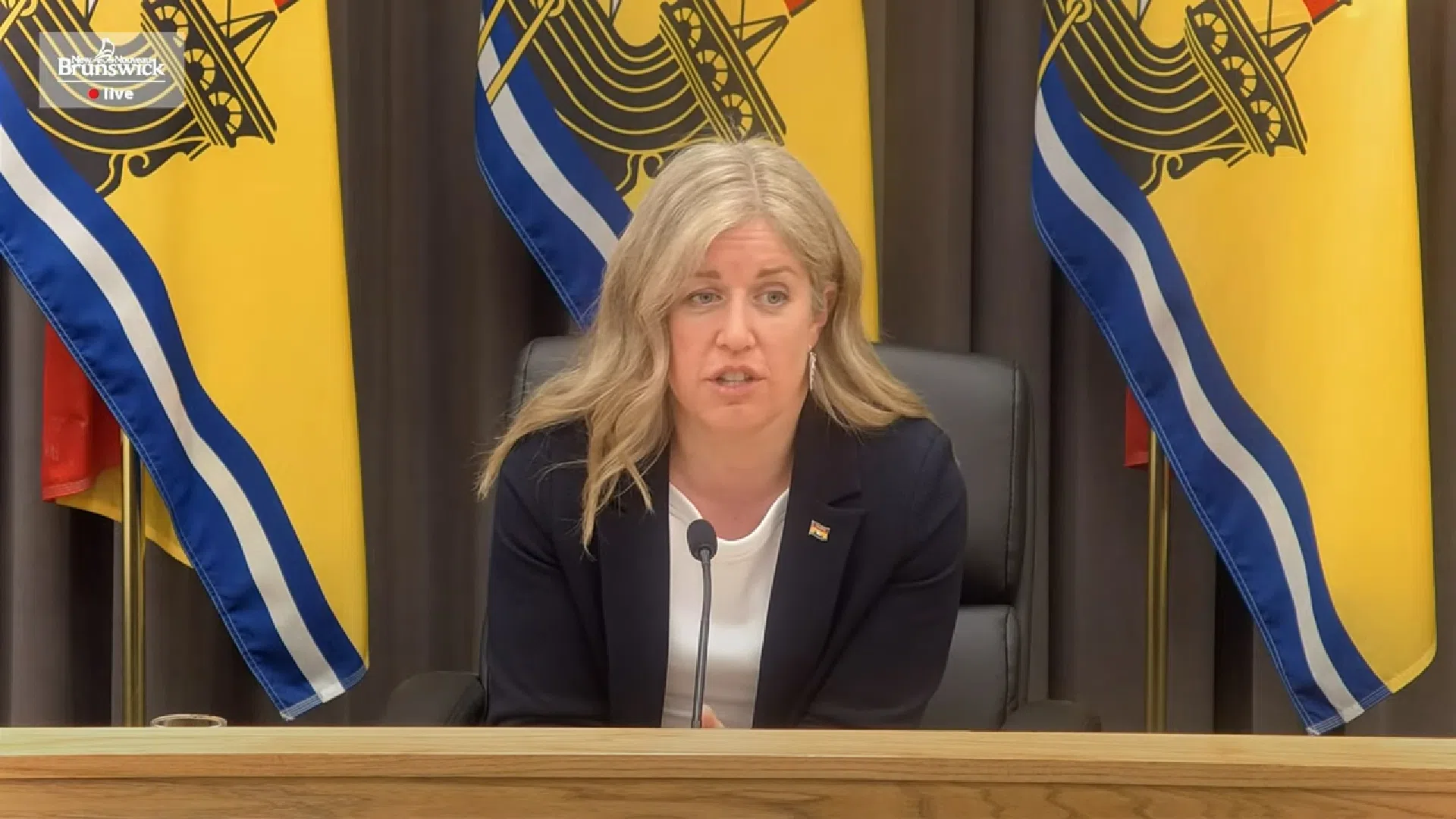The New Brunswick government is taking more steps to try and improve trade between other provinces.
The province announced Thursday that it was removing five more procurement-related interprovincial trade exceptions.
They include Atlantic Lottery, wastewater commissions, regional service commissions, the Greater Moncton Sewerage Commission, and newly created entities such as Crown corporation.
Premier Susan Holt said that is in addition to 10 other exceptions they have already removed or modified.
“We are committed to continuing to review all of the party-specific exceptions and to tear them down to remove trade barriers within Canada,” Holt said during a news conference Thursday afternoon.
The premier said the specific impacts on those organizations, commissions and corporations remain to be seen.
Holt said the exceptions meant they were allowed to prefer and procure locally rather than competitively as the broad intent of the Canada Free Trade Act was.
“By removing the exception that allows them to provide local preference, that means that their procurement will be open to competition from bidders from all over the place,” she added.
With 15 trade exceptions now being removed or modified, the province still has 17 party-specific exceptions still in place.
Holt said many of those are “sticky ones” that involve resource-related items such as Crown wood and the crab fishery.
“It’s the ability to cut Crown wood and process it, and we have some of those minimum requirements on things like the crab fishery,” she said.
“Where it’s natural resources that are critical to New Brunswick’s economy and identity, we’re not yet sure whether we want to remove the requirements to process and add value to those primary products in our province.”
The premier also highlighted the Royal Assent of recent legislation which scraps personal exemption limits on liquor for people entering the province and allows for improved labour mobility.
If you have a Canadian credential from another part of the country, you can immediately begin working in New Brunswick while getting any necessary provincial credentials.
“If it’s good enough for P.E.I. or Manitoba, it is good enough for New Brunswick. We want to make sure that we have access to the Canadian talent that we need to continue to grow our economy and serve New Brunswickers.”







